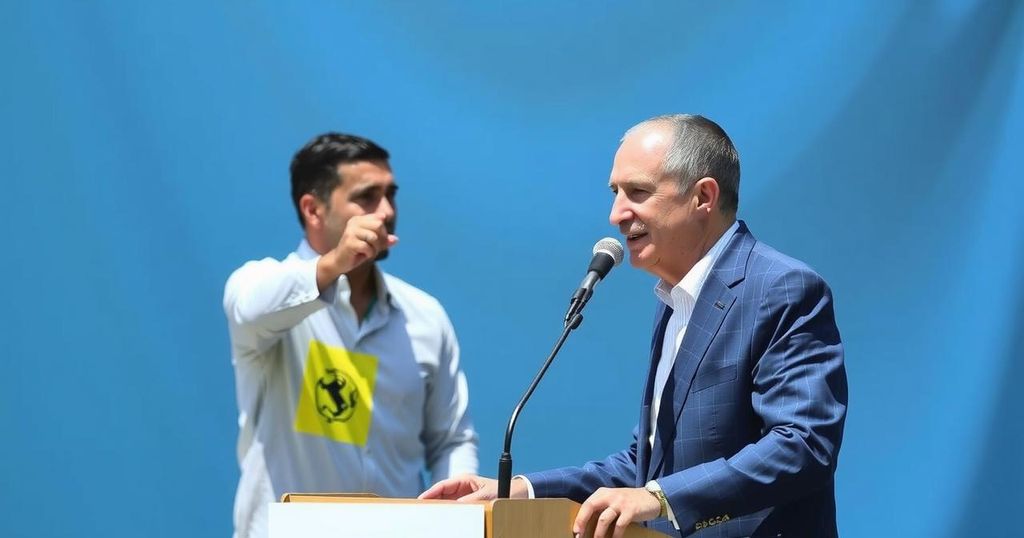Uruguay’s presidential election features a tight race between center-left Yamandu Orsi and conservative Álvaro Delgado. The outcome may hinge on underrepresented voters and concerns about inflation. Polls indicate a close result, challenging global trends of incumbents losing traction.
On a backdrop of political stability and moderate governance, Uruguay is poised for a critical presidential run-off election. Voters are heading to the polls to decide between Yamandu Orsi, the opposition center-left candidate advocating for a modern left policy, and Álvaro Delgado, the conservative continuity candidate backed by the Colorado Party. With a voter base of approximately 3.4 million, the election outcome may be determined by a close margin of less than 25,000 votes as concerns over inflation and living costs resonate with the electorate.
The polling stations will be open from 8 a.m. to 7:30 p.m. local time, with initial results expected shortly thereafter. Orsi emerged from the October elections with 43.9 percent of the vote as part of the Broad Front, while Delgado obtained 26.8 percent, bolstered by support from his ally Colorado Party. Historically, both parties have allied successfully in prior elections, indicating the potential for a competitive race.
Despite the lack of a clear majority in the lower house following the recent elections, Orsi claims a strategic advantage due to his party’s Senate majority, which he argues positions him well to lead. Meanwhile, Delgado capitalizes on the popularity of the outgoing President Lacalle Pou, who is term-limited from seeking re-election. The candidates aim to attract voters from smaller, unaligned parties, but have not introduced significant new pledges in recent weeks.
As the election concludes a remarkable year of elections globally, analysts question whether Uruguay will resist the trend of incumbent parties losing ground. The country has weathered recent economic challenges, and political analysts suggest that there is little indication of a strong craving for substantial change from the government. “There are few indications that voters are clamoring for significant political change,” noted Nicolas Saldias of the Economist Intelligence Unit.
Uruguay’s political landscape is characterized by a moderate approach compared to the sharp ideological divides seen in neighboring Latin American countries. With a history of stable governance and progressive policies—including the legalization of marijuana—Uruguay presents a unique case study in contemporary elections. The current presidential race reflects ongoing debates around continuity versus change in government, as well as broader economic concerns such as inflation and living costs that have influenced voter sentiment in various democracies worldwide.
As the presidential run-off approaches, the outcome remains uncertain, with both candidates positioned to appeal to specific segments of the electorate. The narrow gap in support suggests a tightly contested election that could reflect the broader dissatisfaction often observed in global trends against incumbency. Ultimately, the results will reveal whether Uruguay continues its path of moderate governance or if significant shifts are on the horizon as voters express their concerns about economic conditions.
Original Source: www.begadistrictnews.com.au






